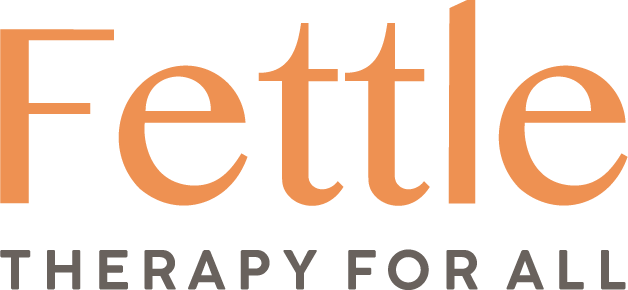
Therapy for ADHD
How common is ADHD in Ireland? Behavioural therapies have proven to be one of the most popular treatments for ADHD. Discover how Fettle's therapists can provide valuable support throughout your ADHD journey.
You are not alone.
Book Your Free 20-Minute Consultation
Choose a time that works best for you
Loading calendar...

What is ADHD?
ADHD, which stands for Attention-Deficit/Hyperactivity Disorder, is a neurodevelopmental disorder characterised by persistent patterns of inattention, hyperactivity, and impulsivity that significantly impact daily functioning and social interactions.
ADHD is a relatively common condition, affecting a significant number of children and adults worldwide. While exact prevalence rates may vary, it is estimated that around 5% to 10% of children and approximately 2% to 5% of adults are diagnosed with ADHD.
ADHD is a lifelong condition, and its symptoms can persist into adulthood. However, it is important to note that with appropriate diagnosis, treatment, and support, individuals with ADHD can lead fulfilling lives and achieve success in various areas.
If you have ADHD, maintaining consistent and restful sleep patterns can often be a significant challenge.
Managing symptoms in work or academic settings can be a common hurdle, with difficulties in maintaining focus, organisation, time management, and impulsivity.
ADHD can also impact relationships
ADHD Symptoms
If you're curious about what ADHD feels like, it's important to recognize that the experience can vary from person to person. ADHD is characterized by a range of symptoms that affect attention, impulsivity, and hyperactivity.
Anxiety Treatment
ADHD treatments aim to help individuals manage their symptoms and improve their overall functioning. The two primary approaches to treating ADHD are medication and behavioural therapies.
Medications can help improve attention, reduce hyperactivity, and manage impulsivity. Behavioural therapies, such as cognitive-behavioural therapy (CBT) and behavioural interventions, focus on developing coping strategies, improving organisation and time management skills, and addressing specific challenges associated with ADHD.
Types of Therapy for Anxiety
All therapeutic interventions aim to assist people with anxiety in identifying the root of their concern, understanding its triggers, and learning new methods to cope with them. Some types of treatment teach you how to replace negative ideas and habits with positive ones.
-
In treating ADHD, cognitive behavioural therapy (CBT) is quite successful. Your psychologist will assist you in learning new strategies to recognise and manage the elements that contribute to your anxiety during CBT treatment.
CBT is a type of mental health therapy that combines cognitive and behavioural therapy. You'll study the fundamentals of cognitive restructuring in cognitive therapy, which entails identifying the thoughts that cause worry. You can help them feel better by teaching them how to replace negative thoughts with more realistic ones. Meanwhile, you'll discover CBT strategies to lessen troublesome behaviours associated with anxiety-related diseases through behaviour therapy. Your psychologist will urge you to participate in anxiety-provoking tasks during behaviour therapy, and you will learn that the consequences you fear are unlikely.
Book a Therapy Session Now!
Choose Your Therapy Plan
Start with a free consultation, book individual sessions, or save with our 3-session bundle
Let's Talk - Find Your Path
20 minute discovery call
No cost, no obligation
- Discover what's available to you
- Explore therapy options together
- Find the right therapist fit
- Ask any questions you have
- No pressure to commit
Pay As You Go
Standard 50-minute session
Per session
- Book sessions at your own pace
- No commitment required
- Perfect for flexible schedules
- Full 50-minute sessions
- Access to all qualified therapists
3-Session Bundle
Your starter journey to lasting change
- Book anytime that suits your schedule
- Weekend sessions available
- Out-of-office hours appointments
This bundle offers the perfect balance of flexibility and commitment — giving you the freedom to schedule around your life while making a meaningful investment in your mental health journey.
Start Your JourneyWhy Long-Term Therapy Creates Lasting Change
Research consistently shows that while short-term therapy provides quick relief, long-term therapy delivers deeper, more sustainable transformation that continues to benefit you for years after treatment ends.
The Long-Term Advantage
While short-term therapies provide benefits more quickly, research from the Helsinki Psychotherapy Study shows that long-term therapy becomes more effective over time, with superior outcomes appearing after the first year and continuing to grow throughout the follow-up period.
Long-term therapy provides additional benefits for psychosocial functioning and quality of life that emerge later in treatment and persist for years, including improvements in sense of coherence, perceived competence, and dispositional optimism.
The gains from therapy are markedly stable and endure several years after treatment ends, with long-term therapy showing particular benefits for improving perceived social support - a crucial factor for psychological well-being.
The Bottom Line
Committing to long-term therapy (6+ sessions) gives you the time and support needed to create deep, lasting transformation that continues to benefit you long after your sessions end.
Frequently Asked Questions
-
Behavioural Therapies: Behavioural therapies, such as cognitive-behavioural therapy (CBT), can provide valuable skills and strategies to manage ADHD symptoms. These therapies focus on developing coping mechanisms, improving time management and organisational skills, and addressing specific challenges associated with ADHD.
Skill-Building: Learning specific skills can be beneficial in managing ADHD. This may include improving organisation, planning, and time management skills, enhancing self-regulation and impulse control, and developing effective problem-solving strategies.
Supportive Environment: Creating a supportive environment can greatly help individuals with ADHD. This may involve setting up routines, establishing clear expectations, minimising distractions, and providing structure and organisation in daily life.
Education and Self-Understanding: Learning about ADHD, its symptoms, and how it affects you personally can be empowering. Education helps you understand your strengths and challenges and enables you to advocate for yourself and seek appropriate support.
Support Networks: Connecting with support networks, such as ADHD support groups or online communities, can provide valuable insights, advice, and emotional support from others who understand the challenges of living with ADHD.
-
ADHD therapy refers to a range of interventions and treatments aimed at helping individuals with ADHD manage their symptoms, improve their daily functioning, and enhance their overall quality of life. ADHD therapy typically involves working with healthcare professionals, such as psychiatrists, psychologists, or therapists, who specialise in ADHD.
The primary goal of ADHD therapy is to provide individuals with strategies, skills, and support to effectively cope with the challenges associated with ADHD. Here are some key elements commonly found in ADHD therapy:
Behavioural Therapies: Behavioural therapies, such as cognitive-behavioural therapy (CBT), are commonly used in ADHD therapy. These therapies focus on identifying and modifying negative or unhelpful patterns of thinking and behaviour. They help individuals develop coping mechanisms, improve time management and organisational skills, regulate emotions, and address specific challenges related to ADHD.
-
Deciding whether or not you need ADHD therapy is a personal decision that depends on several factors. Here are some signs and considerations that may indicate the need for ADHD therapy:
Persistent Challenges with ADHD Symptoms: If you consistently experience difficulties related to attention, impulsivity, and hyperactivity that significantly impact your daily life, relationships, work, or academic performance, it may be a sign that ADHD therapy could be beneficial.
Impaired Functioning: If ADHD symptoms interfere with your ability to complete tasks, stay organised, manage time effectively, maintain relationships, or reach your goals, seeking ADHD therapy can help you develop strategies to improve your functioning.
Emotional Distress: If you frequently experience emotional distress, frustration, low self-esteem, anxiety, or depression related to ADHD symptoms, therapy can provide support and help you develop coping mechanisms to manage these challenges.
Struggles with Self-Regulation: If you find it difficult to control impulsive behaviours, manage emotions, or regulate attention, therapy can provide tools and techniques to enhance self-regulation skills.
Difficulty with Relationships: If ADHD symptoms contribute to challenges in your relationships with family, friends, or colleagues, therapy can assist in developing communication skills, problem-solving strategies, and understanding how ADHD impacts these interactions.
-
During ADHD therapy sessions, you can expect a supportive and collaborative environment where you work together with a trained professional, such as a psychologist, psychiatrist, or therapist, who specializes in ADHD. While specific approaches may vary, here are some common elements and expectations of ADHD therapy sessions:
Assessment and Evaluation: At the beginning of therapy, the clinician will typically conduct an assessment to gather information about your ADHD symptoms, challenges, and goals. This may involve discussions about your personal history, symptomatology, and any previous treatments or interventions.
Goal Setting: Together with your therapist, you will identify specific goals you want to work on during therapy. These goals may relate to improving organisation, managing time, enhancing attention, reducing impulsivity, or addressing other challenges associated with ADHD.
Skill Development and Strategies: ADHD therapy often involves learning and practicing specific skills and strategies to manage symptoms and improve functioning. Your therapist will guide you through exercises and provide tools to help you develop and strengthen these skills. These may include techniques for improving focus, organising tasks, managing impulsivity, and enhancing time management abilities.
-
Estimates suggest that approximately 5% to 7% of children and adolescents in Ireland have ADHD. It's worth noting that ADHD can persist into adulthood, and the prevalence in adults is lower but still significant.
-
Yes, ADHD can persist into adulthood, and it is indeed common in adults. While the prevalence rates of ADHD tend to be higher in children and adolescents, studies indicate that ADHD affects a significant number of adults as well. The exact prevalence rates may vary depending on the specific population studied and the criteria used for diagnosis.
Estimates suggest that approximately 2% to 5% of adults worldwide have ADHD. However, it's important to note that ADHD in adults often remains undiagnosed or misdiagnosed, which can lead to challenges in obtaining appropriate support and treatment.
Recognising ADHD in adulthood can be complex, as symptoms may manifest differently compared to childhood. Adults with ADHD may experience difficulties with attention, impulsivity, organisation, time management, and maintaining relationships. They may also encounter challenges in academic or work settings.
If you suspect you may have ADHD as an adult, it is advisable to seek a comprehensive evaluation from a healthcare professional, such as a psychiatrist or psychologist, who specialises in ADHD. A proper diagnosis can help provide a clearer understanding of your symptoms and guide appropriate treatment and support strategies to improve your overall functioning and quality of life.



